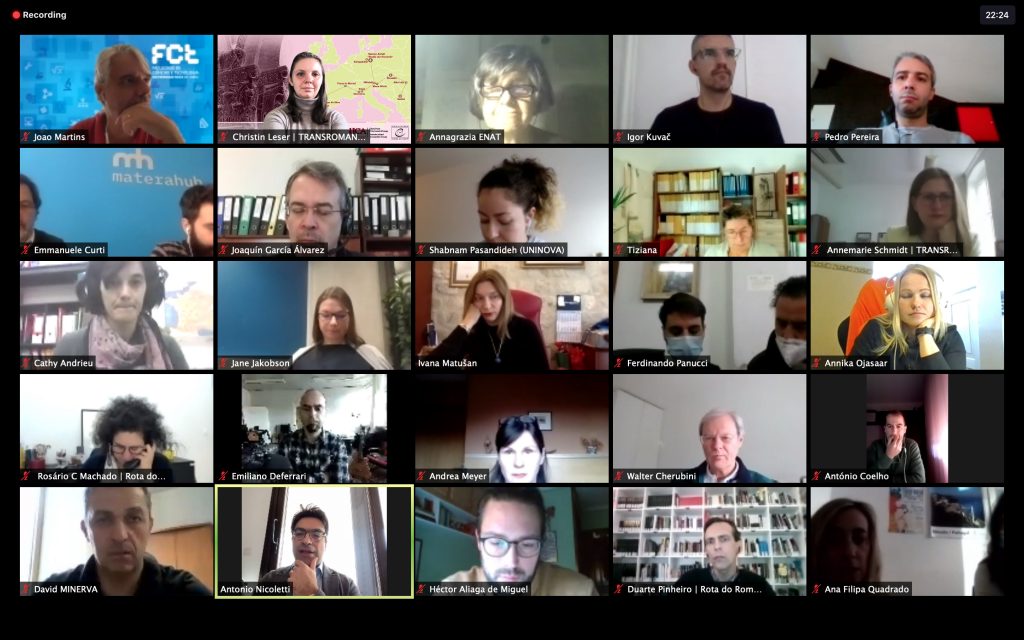On 20 November 2o20, the second IMPACTOUR webinar for stakeholders from the field of cultural tourism took place as a web conference.
46 participants from various regions all over Europe came together to share their experience on how the Covid-19 pandemic affected cultural tourism. They were asked to report on the consequences of the lockdown and the following restrictions in their destinations and to give some insights in their attempts to deal with the situation.
The Corona crisis has strong influences on cultural tourism in all participating regions. The spring lockdown caused the institutions and sites to close down and to cancel activities and events. The second lockdown is now again hitting hard at the destinations. Cancellations and closings are shaping the picture bringing small tourism and gastronomy businesses to the limits of their capacity.
The summer – as a phase between two lockdowns – revealed a new type of cultural tourism. People’s appreciation for their home destinations, natural and cultural heritage and tranquility increased. As a result, the destinations benefitted from domestic tourism activity and could even register high visitor numbers.
When talking about strategies and concepts that were developed in order to deal with the new situation, it can be noticed that several key aspects can be found in most of the regions. The terms “green”, “sustainable” and “digital” were among the most representative ideas that were shared. Making use of digital technologies to bring people outside (rather than into any buildings or institutions) to discover the territory ranks among the main measures that were taken. Furthermore, it was highlighted repeatedly that local communities are playing a key role for the success of the cultural tourism initiatives.

TRANSROMANICA was strongly represented during the meeting through participants from the “Rota do Românico” (Portugal), the “Straße der Romanik” (Germany) and from the head office.
Andrea Meyer (“Straße der Romanik”) reported heavy economical losses in caused by decreases in arrivals, overnight stays and traffic between March and August with a recovery during the summer holiday season. She concluded that in total negative operating results have to be expected by the end of the year. As a measure to meet the challenges she introduced the “Echt Schön – Sachsen-Anhalt” (Saxony-Anhalt – Really Beautiful” campaign that has the aim to present Saxony-Anhalt as an attractive destination for domestic tourists.
Duarte Pinheiro (”Rota do Românico”) confirmed that also for the cultural route in the north of Portugal the past months resulted in a dramatic situation for tourism and gastronomy businesses. Although a high number of visitors could be counted during the summer, it has to be stated that day trippers and short holiday makers from the region such as families, couples, grandparents and children cannot balance losses caused by full cancellations of booked groups.
With a view to the future he invited everyone to join in the first digital edition of the AR&PA Cultural Heritage Fair which is going to take place under the participation of the “Rota do Românico” next week.
We are looking forward to continuing the work with the experience of the IMPACTOUR stakeholders all across Europe to learn from each other and to cooperate in order to jointly overcome the crisis. As João Martins from UNINOVA pointed out already in the beginning of the meeting: Although we are currently facing a severe crisis for the tourism sector, this is not the first and it will certainly not be the last crisis. Therefore, we have to work together on the development of strategies to overcome this and future difficult situations because giving up should not be an option.

